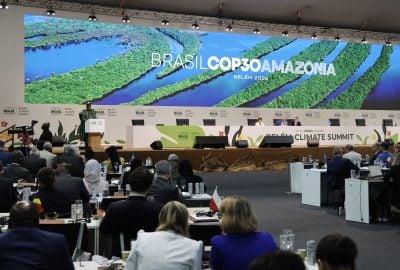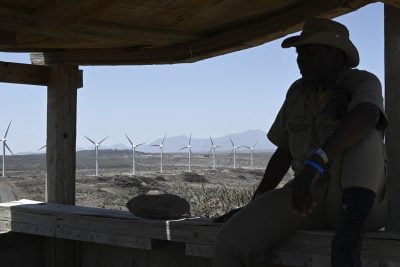French oil and gas giant TotalEnergies is preparing to restart development work on its long-delayed liquefied natural gas (LNG) fsproject in northern Mozambique – but faces a key test in persuading lenders to fulfil their commitments.
Total originally took a final investment decision on the project in 2019, and agreed a debt financing arrangement with eight export credit agencies, along with 19 commercial lenders and the African Development Bank. Japanese commodities firm Mitsui, Mozambique’s state-owned ENH, and several Indian and Thai firms also hold equity stakes alongside Total
Just two years after greenlighting the $20bn development, Total was forced to declare force majeure in 2021 as the Islamist insurgency in Cabo Delgado province made onshore construction activities impossible. Now Total faces the challenge of persuading those investors who committed before the suspension to stick with the project.
“The operator has been planning to lift the force majeure for some years now, and we have seen improvements in the security situation, at least around the LNG facility,” says Pranav Joshi, vice president of upstream research at advisory firm Rystad Energy.
“The main thing would be to get the financing agreed on, because that is critical for the project to move ahead. If there are any [export credit] agencies that are backing out, then we can expect more delays on the project.”
US firm, UK wavers
Total is optimistic that the Export-Impact Bank of the United States will re-approve its loan offer. Total CEO Patrick Pouyanné said last week in a conference call with investors that it is “a question of weeks” before the US loan is rubber-stamped.
But UK Export Finance is reportedly seeking legal advice on withdrawing its $1.15bn loan offer, due to the UK government’s stance on funding fossil fuel projects. In his conference call Pouyanné said that he is “ready to exercise all my contractual rights,” if any export credit agency backs out.
Joshi notes that while any backtracking from export credit agencies is likely to cause further delays, it may be possible to persuade committed lenders – particularly Asian banks – to increase their contribution.
But not everyone is convinced that financing hurdles are the main reasons for the delay in lifting force majeure. Total is “buying more time” by claiming that the project’s resumption depends on export credit agency approvals, suggests Anna Westwell, senior associate at strategic advisory firm JS Held.
The viability of the project depends on containing the insurgency and ensuring the economic redevelopment of Cabo Delgado, she argues.
The long road to production
Total originally intended to start delivering gas from Mozambique in 2024. Rystad believes that 2030 is now the most likely date to start production – but says this depends on avoiding further roadblocks.
“Our estimate is strictly based on a potential resumption of construction activities by the second half of next year,” says Joshi.
“Any delay due to any reasons, be it security or financing not being resolved or contract negotiations taking longer, that obviously delays the project even further.”
Even if construction can resume next year, developments costs are likely to be considerably higher in real terms than originally planned, due to global inflation in recent years. Meanwhile, with LNG deliveries delayed until around 2030, market conditions when the gas is shipped may be less favourable than anticipated.
“In terms of the long-term LNG demand outlook, there could be stiffer competition coming in from the likes of Qatar or even the US,” says Joshi. “So the gap that needs to be filled in the market right now will also continue to shrink as time passes by.”
JS Held’s Westwell adds that the project could be “utterly transformative for Mozambique’s economy,” but only if it is well-managed. The delay in receiving revenues from Total’s LNG project is partly responsible for the country’s ongoing economic difficulties, she says, while the budget shortfall means less money is available to begin the rebuilding of conflict-ravaged Cabo Delgado.
“Without LNG exports, the new government under Daniel Chapo will need to act quickly to implement fiscal prudence,” she says.
Want to continue reading? Subscribe today.
You've read all your free articles for this month! Subscribe now to enjoy full access to our content.
Digital Monthly
£8.00 / month
Receive full unlimited access to our articles, opinions, podcasts and more.
Digital Yearly
£70.00 / year
Our best value offer - save £26 and gain access to all of our digital content for an entire year!

 Sign in with Google
Sign in with Google 



